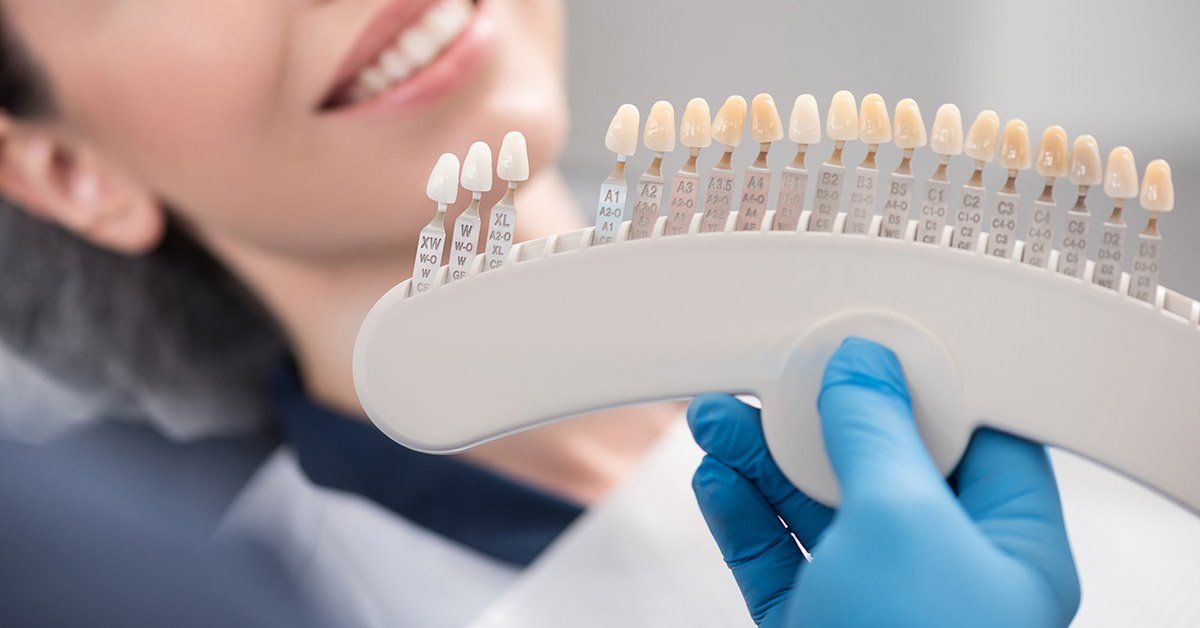What Are Dental Veneers | Types Of Dental Veneers | Veneers Process
Are you ready to transform your smile? Here is everything you need to know about dental veneers and why it could be your perfect smile solution.
The appearance of your teeth has a direct impact on your confidence. If you don't like how your teeth look, your self-esteem will take a hit, which can then lower your quality of life.
But you don't have to live with cracked, stained, or misaligned teeth. A simple cosmetic treatment can transform your teeth and get your confidence back on track.
We've put together this guide to show you everything you need to know about what dental veneers are, how they work, what they do, and how they can benefit you. So make sure you keep reading below!
What Are Dental Veneers?
Dental veneers are a type of cosmetic dentistry treatment. They're thin sheets of porcelain or resin that attach to the surface of your teeth.
You can get a single veneer on one tooth or apply them to every tooth in your mouth (depending on why you need them). If you only get one veneer, your dentist will match the color to the rest of your teeth, so it'll look natural. You won't be able to see the difference when you smile.
Once these veneers are on your teeth, they can last for several decades—as long as you take care of them. The good news is you don't have to change your oral health routine to keep them in good condition. Regular brushing and flossing are all veneers need.
But before you can get one, you have to figure out which type will best suit your needs. Here's a quick breakdown of the difference between porcelain and resin veneers.
Porcelain Veneers
These veneers are made of (you guessed it) porcelain.
When getting this type of veneer, your dentist will adhere a thin shell of porcelain to the surface of your tooth. The porcelain makes this shell durable. It can last at least 15 years without getting damaged, which is longer than resin.
However, this extra-strength comes with an added cost. You'll have to pay more money for a porcelain veneer.
Resin Veneers
Instead of attaching to the surface of your tooth, resin veneers are painted directly on your tooth. The substance will harden quickly, creating a protective layer. Although this layer isn't as strong as porcelain, it's cheaper and doesn't take as long to get.
If you want a quick cosmetic fix, resin might be the better choice for you. Also,
your dentist will be able to walk you through the pros and cons of each veneer type and recommend the best treatment for your smile.
What Type of Oral Conditions Can Veneers Fix?
Since veneers cover the surface of your teeth, they can completely transform the appearance of your smile. Do you have any imperfections you don't like? Getting a veneer means you won't have to see it again.
For example, veneers can fix any of the following problems:
- Stains
- Cracks
- Chips
- Small gaps between teeth
- Minor misalignment issues
- Weakened or worn down enamel
You can also use veneers to change the color of your teeth. If you don't want to go through whitening treatment several times a year, you can get veneers instead. Your dentist can make them a few shades lighter than your normal teeth, which will make your smile brighter.
Keep in mind, getting veneers is more expensive than normal whiting treatment. However, your veneers will work better, and the whiteness will last longer, too.
What to Expect When Getting a Dental Veneer
It takes several different visits to the dentist's office to finish your dental veneer treatment. The process will also differ somewhat depending on the type of material you get.
Here's a quick look at what you can expect during your appointments.
Porcelain Veneer Process
The first step of getting a veneer (no matter what type you end up with) is a consultation. Your dentist will take a look at your teeth and determine if you're a good candidate for the treatment. If you are, they'll walk you through the next steps and what type of veneer you should get.
After that, you'll come back for a second appointment. Your dentist will shave a very thin layer of your tooth's enamel away to make space for the veneer. Then they'll take an impression of your tooth, which they'll use to create your porcelain veneer. Since this will take a week or two, you'll be fitted with a temporary veneer while you wait.
During your final appointment, your dentist will attach the permanent veneer to your tooth.
Resin Veneer Process
Again, this process will start with a consultation. If you're getting resin veneers, though, you may only need two appointments instead of three.
During your second visit, your dentist will again shave away a small layer of enamel. Then they'll apply a few different layers of resin to your tooth, letting each layer dry before adding another one.
Once the layers are applied, your veneer is finished.
Getting Ready for Your Dental Veneers
The most important part of getting dental veneers is finding a skilled dentist who can provide quality treatment. This will ensure the veneers do what they're supposed to do, match the color of your teeth, and last for a long time.
Not sure where to look?
We've got you covered. The Maryland Center for Complete Dentistry offers dental veneer services that can transform your smile. Make sure you visit our office in Owings Mills, MD to set up an appointment, or you can give us a call today!




